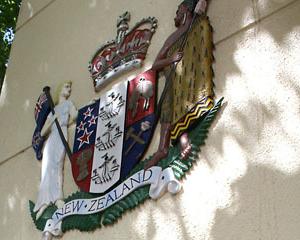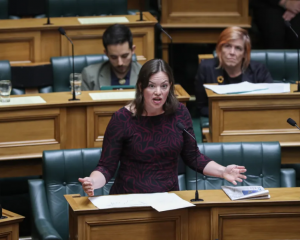
While not going so far as to give the courts the power to strike down laws - as the United States Supreme Court can - a declaration of inconsistency will result in a law automatically being sent back to Parliament to be reconsidered.
The move, a major constitutional shift, was approved by Cabinet yesterday.
However, Attorney-general David Parker was quick to emphasise Parliament would remain the top constitutional body.
``The courts would not be able to strike down statutory law and Parliament would retain its sovereignty,'' he said.
``After reconsideration, Parliament could amend, repeal or stick with the law as originally passed.''
Creating the power to make a declaration of inconsistency will require the New Zealand Bill of Rights to be amended.
However, the Government will only require a bare majority to effect that change.
``The Bill of Rights is considered an ordinary statute, despite its constitutional nature,'' University of Otago law professor Andrew Geddis said.
``So a bare majority of Parliament can change it in any way ... the important question will be how Parliament treats such declarations in the future, particularly if it starts to treat them as being in some way binding on them, so they feel they must change the law when the court speaks.
``Then in practice, this could give us the sort of judicial review we see in the United States, Canada, and elsewhere.''
Constitutional lawyers have long called for the Bill of Rights to be strengthened and last year the politician who drafted it, Sir Geoffrey Palmer, said it did not do enough to protect democratic rights.
At present the Attorney-general is obliged to warn Parliament if it is about to pass laws which breach the Bill of Rights, but Parliament remains free to pass such laws regardless.
A high-profile example was the law banning prisoners from voting in elections, which the Attorney-general reported breached the Bill of Rights but which was passed despite that.
Prisoner litigant Arthur Taylor sought judicial review of that law and asked for a declaration of inconsistency with the Bill of Rights - which, for the first time, the court agreed to do.
However, that declaration had no force or power - unlike the declaration the Government yesterday proposed.
``Arthur Taylor, for all his faults as a human being, has been remarkably successful in his efforts to change New Zealand's legal system, and this is probably the cherry on the top,'' Prof Geddis said.
Justice Minister Andrew Little said declarations of inconsistency would perform an important function.
``They will inform Parliament that the senior courts consider an Act of Parliament to be inconsistent with the fundamental human rights affirmed in the Bill of Rights Act.
``The Government supports the senior courts making declarations of inconsistency where there is a legislative power.
``As there is currently no explicit power in the Bill of Rights Act, amending the Act will allow for this.''
Prof Geddis said there would be no reason why courts could not declare existing laws to be inconsistent.
Making a declaration would be a discretionary power, but one which judges might be more willing to use as Parliament intended to given it real effect, he said.
``I would imagine all the laws on the statute books would be opened up ... although the Court of Appeal in the Taylor decision limited the sorts of people able to ask for such declarations to people who were very directly affected by the legislation in question.
``You can't just go out and challenge any law you feel like - you have to show you are affected by it in some way.''












